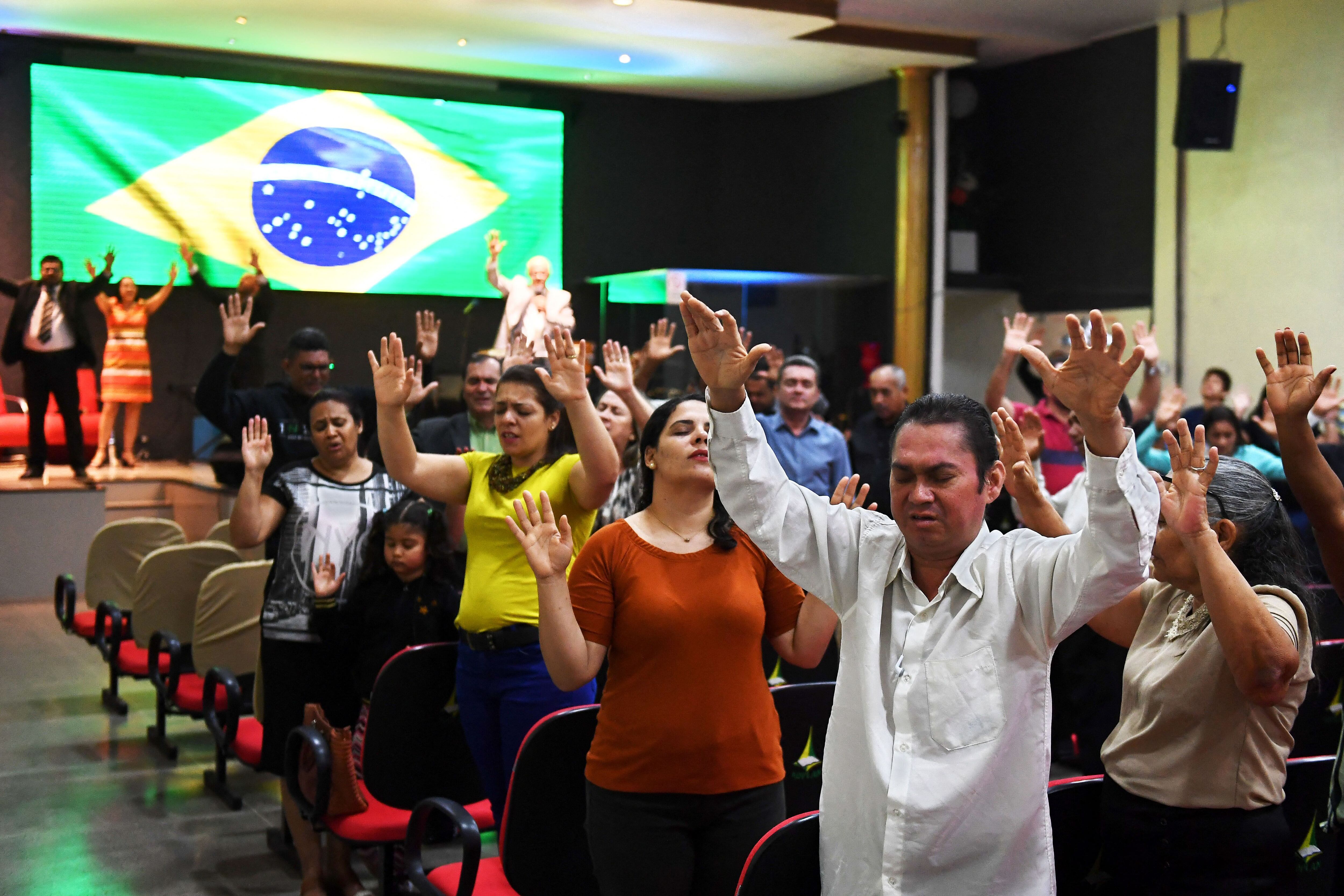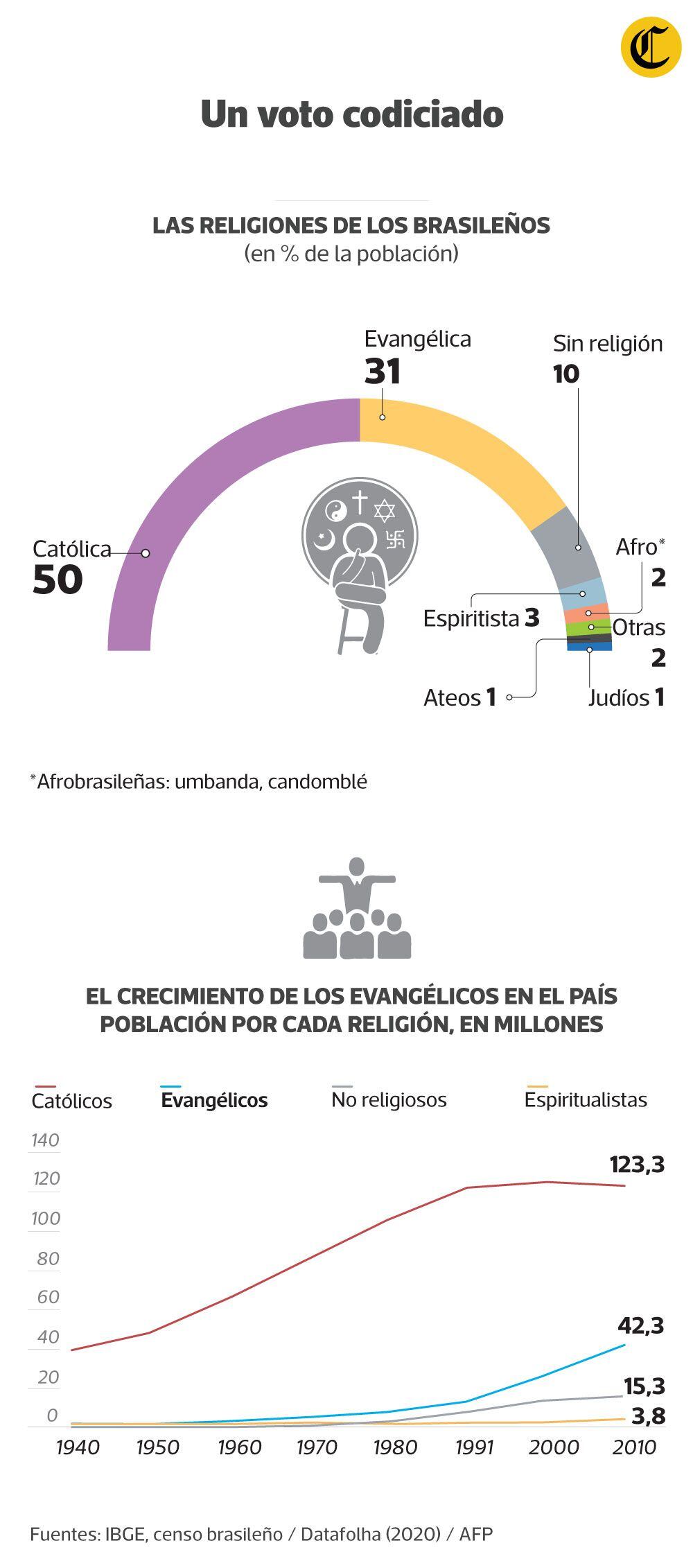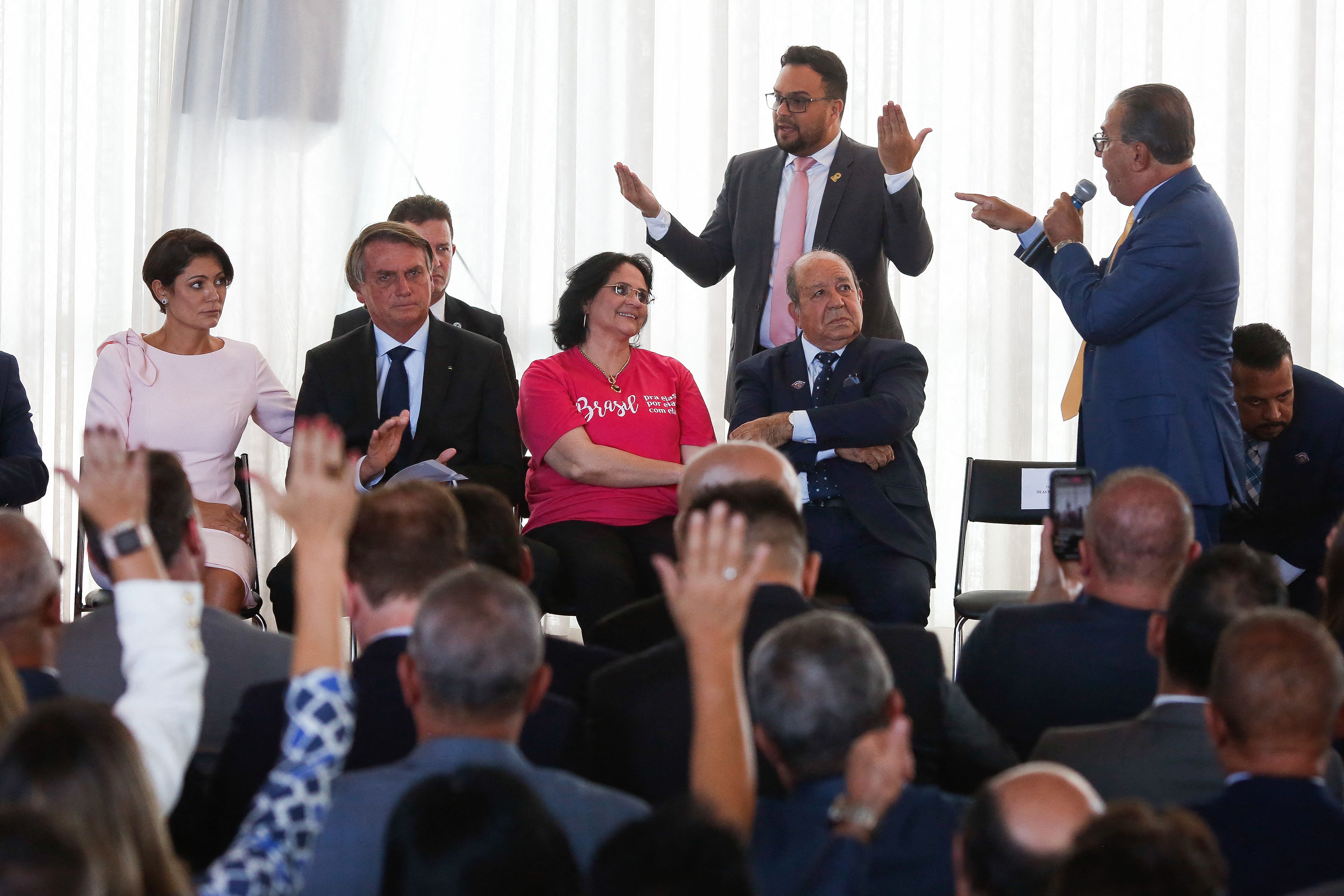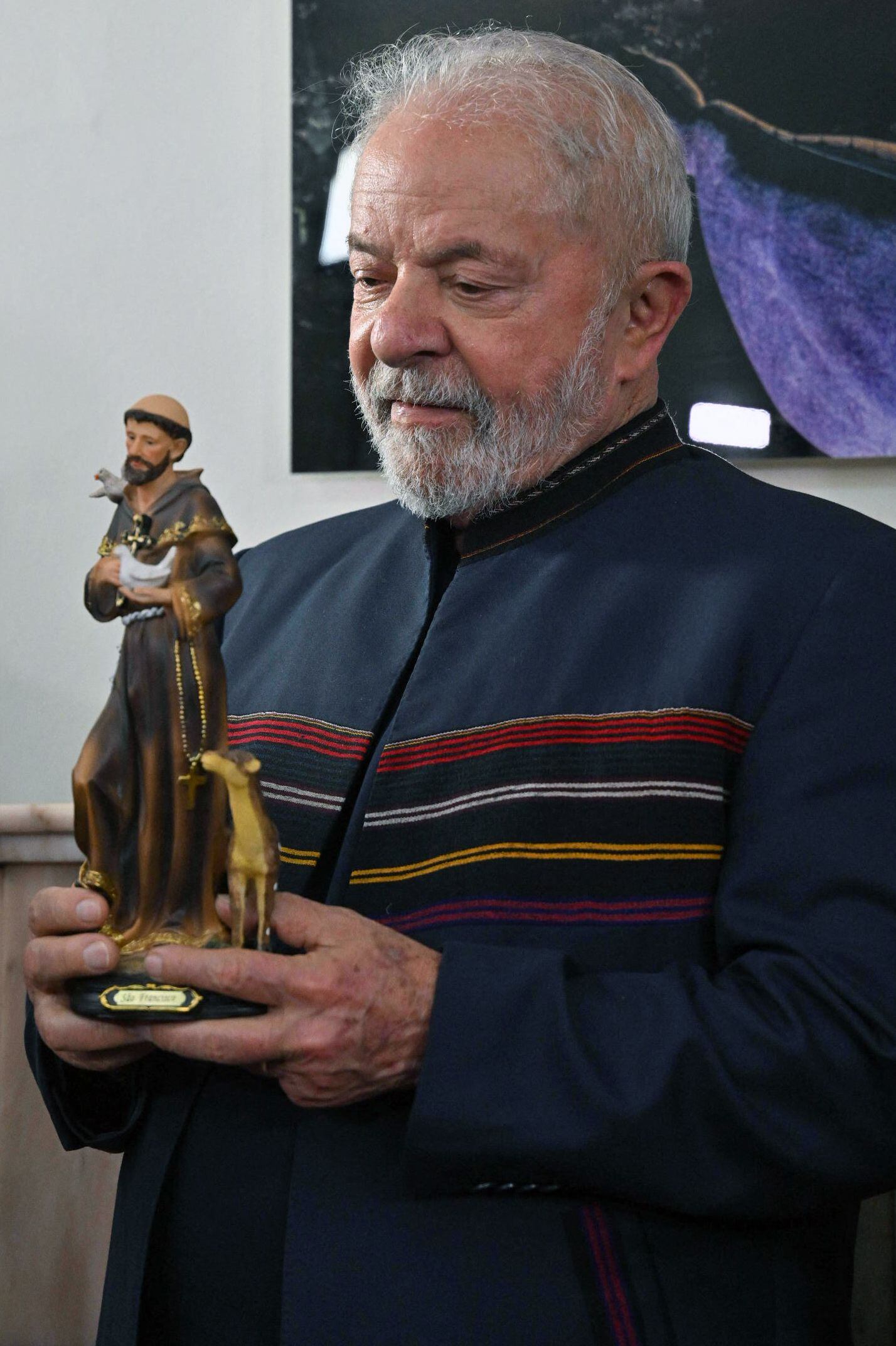In the final stretch of the campaign for the presidency of Brazil faith is not just a spiritual matter. In recent weeks, the president Jair Bolsonaro and the former president Luiz Inacio Lula da Silva they have turned in search of the religious vote, which could be crucial in the second round this Sunday, the 30th. “Brazil above everything and God above all,” said the current far-right president. “God and family”, repeats his opponent more and more.
READ ALSO: Lula vs. Bolsonaro: Who is winning in Brazil six days before the second round, according to the latest poll
The attacks of both candidates with religion as a background have increased in Brazil, a secular country with a Catholic majority that has seen the influence of evangelicals grow. Bolsonaro, a Catholic with a devout evangelical wife, has exploited his ties to the latter religion.
With a strong defense of the “traditional family”, the head of state has opted for a speech that highlights conservative ideals. He rejects abortion and gender equality and has associated them with Lula da Silva, whom some Bolsonaro supporters have accused of making deals with the devil.
Lula, for his part, has redoubled his efforts to distance himself from the attacks and attract the religious vote. He issued a statement in which he denied having contact with the devil and published a letter to evangelicals in which he pledged freedom of worship and family. She has also multiplied her presence in prayers, has sung religious songs and has surrounded herself with Franciscan friars, nuns, priests and evangelical pastors. She even highlighted her personal rejection of abortion, retracting statements made months ago.
Lula was the most voted candidate in the first round of the elections, but he did not obtain the necessary majority to avoid the ballot. In the final stretch of the race, the polls continue to show Lula with an advantage, but they also indicate that Bolsonaro has closed the gap somewhat in recent weeks.
“Religious rhetoric is very present in the debate”, the Brazilian political analyst Mauricio Santoro tells El Comercio and highlights that the impact of the religious discourse made Lula da Silva clarify his positions “on topics such as the family and abortion, explaining that he believes in God and reaffirming himself as a Catholic”.
The growing evangelical vote

While Catholicism remains the majority religion in Brazil (50% of the population), evangelical Christians make up almost a third of the country’s residents, more than double what it was two decades ago.
According to polls, Lula has lost support among evangelicals, the majority of whom favor the far-right leader. Bolsonaro leads the hunt for the evangelical vote with 50% support compared to 32% for the former president, according to a Datafolha poll from early October.
“LReligion has been very important in the mobilization of evangelicals, they are about a third of the voters in Brazil and a group that supports above all Bolsonaro, who tries to turn the elections into a cultural struggle over religious values, so as not to have to talk about the economy and the pandemicSantoro says.

For the Brazilian political analyst Luciana Santana, religion has greatly influenced the vote of Brazilians. “Your support is important especially because of the activism of evangelicals who have increased their participation in spaces of power. In these elections it has not been different. The evangelical vote has especially increased Christian conservatism in politics”, he points out.
Will it be decisive?

Although evangelicals are a very important group in the election, experts agree that their participation does not seem to have the conditions to define the final results.
Santana explains that both candidates want to have that vote, but the difference is that the majority of evangelical voters are pro-Bolsonaro and the majority of Catholics are pro-Lula.
“Campaigns have tried to touch on moral issues. In the case of Lula trying to undo the false news that he is not a Christian and wants to implement measures against Christian ethics. On the other hand, Bolsonaro uses the faith of evangelicals to say that he is the bearer of Christian morality, beyond the fact that he defends the use of weapons and has allies involved in episodes of violence.”, considers Santana.

For this reason, the expert considers that the evangelical vote should not be decisive since the Catholic electorate continues to be the majority in the country and has shown greater support for Lula, according to the polls.
Santoro agrees: “Most evangelicals support Bolsonaro, but I don’t think they have the conditions to define the final results. Religious rhetoric is very present in the debate, but it does not seem to have changed electoral preferences”.
Source: Elcomercio
I, Ronald Payne, am a journalist and author who dedicated his life to telling the stories that need to be said. I have over 7 years of experience as a reporter and editor, covering everything from politics to business to crime.

:quality(75)/cloudfront-us-east-1.images.arcpublishing.com/elcomercio/JLXDXRE6GBHMNJCAGAFPX7HSBI.jpg)





